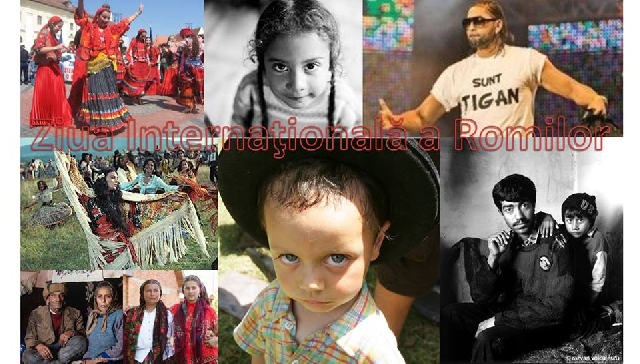The Roma – a European problem
The Roma are Europe’s largest ethnic minority, numbering around 10-12 million people. Of these, 6 million live in the European Union. Many Roma are still victims of prejudice and social exclusion. According to a World Bank survey, in Romania, 9 Roma out of 10 face severe financial drawbacks. Only one third of Roma boys and even fewer Roma girls are still in school at 16. One third of Roma who look for jobs are faced with discrimination. In the neighbouring Hungary, the Roma make up for 7% of the country’s population. Most of them do not have jobs, live in poverty and are relatively uneducated.
People’s reservations when it comes to the Roma have been fuelled in Hungary by the Jobbik far-right party, which won a surprising 21% of the votes in Sunday’s national elections. In the west of Europe, in France, thousands of Romanian and Bulgarian Roma are repeatedly forced out of their illegal camps and expelled, amid much criticism from Brussels. Many of these people return, however, to western Europe.
Having no jobs, some of them turn to petty crime and begging, which does not make them very popular with the local population. In the Czech Republic, far right groups held anti-Roma protests which were not clearly condemned by the authorities.
In light of such examples, Amnesty International said the European Union states have not had a suitable response and have not given enough support to the Roma, who are subject to increasing violence across Europe. Amnesty International calls on European governments to make sure that the police do not resort to disproportionate use of force during the dismantling of illegal camps, pursue racist offenders more efficiently and create statistics on anti-Roma violence.
In Bucharest, the country’s foreign ministry says the solution to the Roma problem should also be based on access to education, housing, healthcare and jobs. According to president Traian Basescu, the law should be tougher when it comes to discrimination, segregation and racial violence. He believes that people should start seeing the Roma not merely as members of a certain ethnic group, but as citizens of Europe. As a result, all local, national and European strategies should be unified, experience exchanges and cross-national cooperation being the main priorities in this regard.

Roxana Vasile, 09.04.2014, 14:26
The Roma are Europe’s largest ethnic minority, numbering around 10-12 million people. Of these, 6 million live in the European Union. Many Roma are still victims of prejudice and social exclusion. According to a World Bank survey, in Romania, 9 Roma out of 10 face severe financial drawbacks. Only one third of Roma boys and even fewer Roma girls are still in school at 16. One third of Roma who look for jobs are faced with discrimination. In the neighbouring Hungary, the Roma make up for 7% of the country’s population. Most of them do not have jobs, live in poverty and are relatively uneducated.
People’s reservations when it comes to the Roma have been fuelled in Hungary by the Jobbik far-right party, which won a surprising 21% of the votes in Sunday’s national elections. In the west of Europe, in France, thousands of Romanian and Bulgarian Roma are repeatedly forced out of their illegal camps and expelled, amid much criticism from Brussels. Many of these people return, however, to western Europe.
Having no jobs, some of them turn to petty crime and begging, which does not make them very popular with the local population. In the Czech Republic, far right groups held anti-Roma protests which were not clearly condemned by the authorities.
In light of such examples, Amnesty International said the European Union states have not had a suitable response and have not given enough support to the Roma, who are subject to increasing violence across Europe. Amnesty International calls on European governments to make sure that the police do not resort to disproportionate use of force during the dismantling of illegal camps, pursue racist offenders more efficiently and create statistics on anti-Roma violence.
In Bucharest, the country’s foreign ministry says the solution to the Roma problem should also be based on access to education, housing, healthcare and jobs. According to president Traian Basescu, the law should be tougher when it comes to discrimination, segregation and racial violence. He believes that people should start seeing the Roma not merely as members of a certain ethnic group, but as citizens of Europe. As a result, all local, national and European strategies should be unified, experience exchanges and cross-national cooperation being the main priorities in this regard.






























